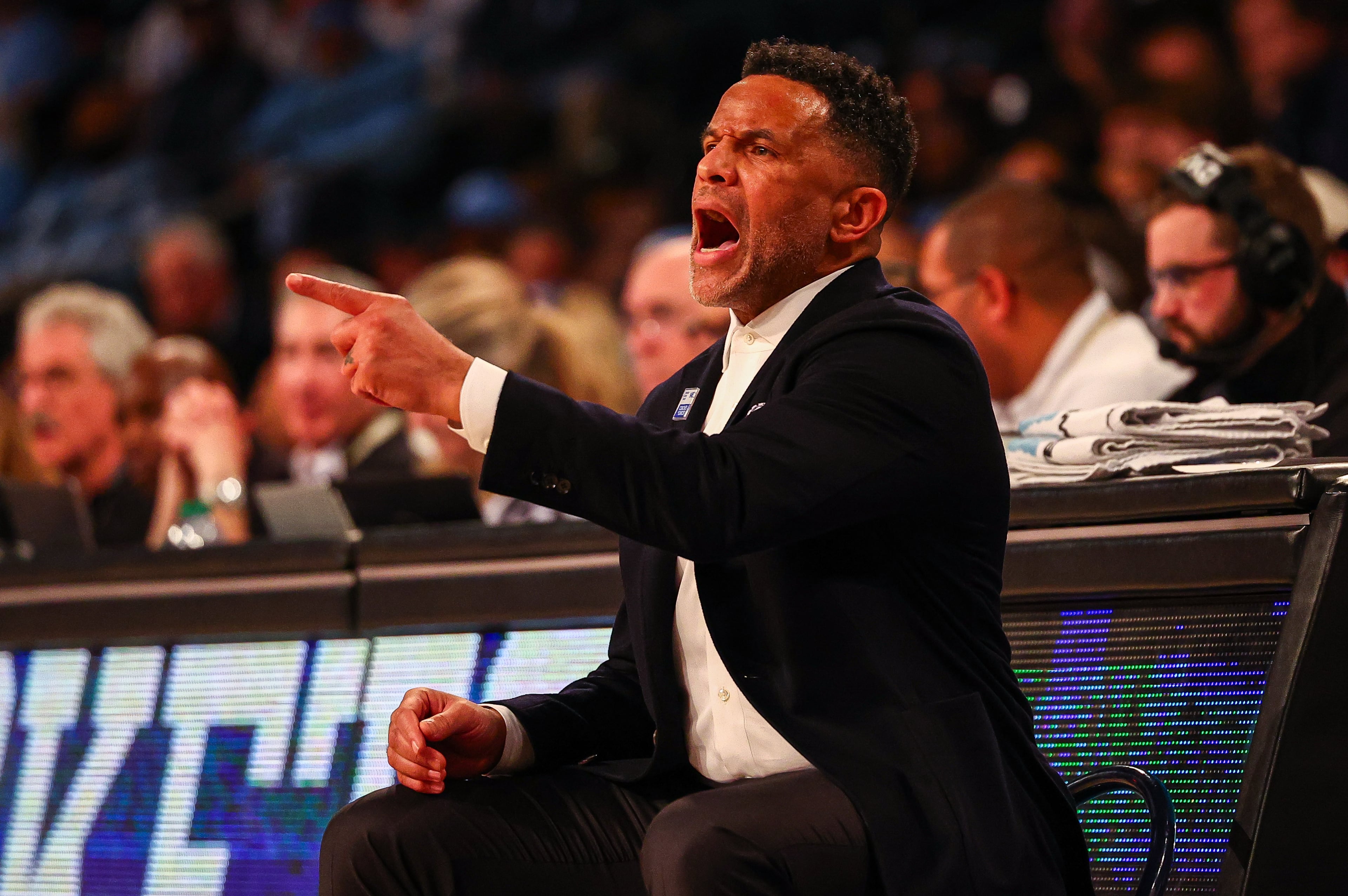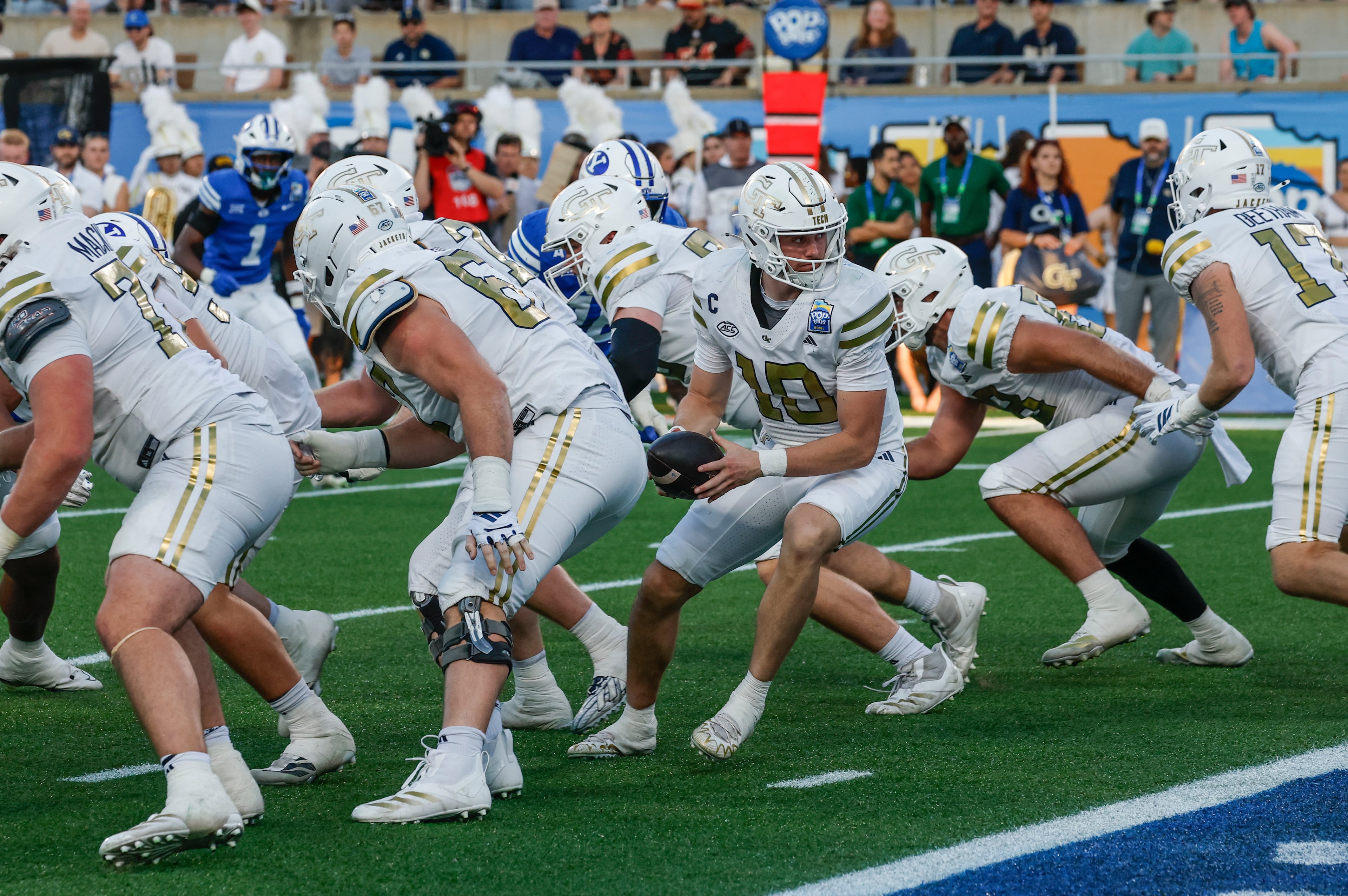Georgia Tech football, ACC teams adapting to new technologies

When Georgia Tech played Georgia State on Aug. 31, a game the Yellow Jackets won 35-12, Tech knew that perhaps it would have to make more in-game adjustments than it would on a normal Saturday. It was State’s first game of the 2024 season, while Tech had beaten Florida State the week before. The Panthers had an entirely new coaching staff and a large group of first-year players.
Making those adjustments, though, was a bit easier that day than perhaps in years past. The 2024 season is the first in which the ACC is allowing coach-to-player and in-game video technology.
“I’ll tell you what, those iPads on the sideline definitely help a little bit because you can’t lie at the moment, can’t make up anything,” Tech quarterback Haynes King said that night after the win. “The eye in the sky doesn’t lie, that’s what they all say.”
The implementation of the aforementioned technologies has somewhat changed the way the game is being played this season around the ACC and college football at the FBS level. Teams are now permitted to use helmet communications and instant-replay video on portable tablets during the game, similar to game-day operations in the NFL.
Donald Moore, the ACC’s director of football, has helped lead the league’s transition with the new technology that began with seven ACC teams experimenting with in-game video during the 2023 bowl season and one using in-helmet communications during that time. The league then drafted a policy for the new technologies in February, and the league’s rules committee approved that policy in April.
The ACC partnered with GSC for in-helmet communications for all 17 ACC teams, as well as Notre Dame. It partnered with Apple and DVSport for the use of Apple iPads for in-game video.
Teams are permitted to install communication devices into 10 helmets each game day, but only two of those helmets (one for a defensive player and one for an offensive player) can be on the field. Those helmets are marked with a green dot — Tech, for instance, typically gives the green-dot helmet to King on offense and maybe linebacker Kyle Efford or safeties Clayton Powell-Lee or LaMiles Brooks on defense.
The players on the field can listen only to the communication, and only one coach can communicate through the feed. The caveat is that communication is silenced by a technician, stationed in the press box next to the game-clock and play-clock operators, with 15 seconds remaining on the play clock or at the snap of the ball — whichever comes first.
“We had some technical difficulties the first couple of games, but last game was smooth,” Tech coach Brent Key said Sept. 10. “I think it affords you to be able to have a cleaner game at times. It’s something though we monitor every week. When we go back and look at the game, we talk about the communication and if there are issues and what we need to improve on.”
Before the start of the season, the ACC sent 21 iPads and two sideline carts (one for the visiting team and one for the home team) to each league school. Eighteen of those iPads are permitted to be active during game days. They are connected to three in-venue video angles — the program feed, the coaches’ sideline feed and the coaches’ end-zone feed — and are allowed on the sidelines, coaches’ booths and locker rooms.
Through a wired connection in the sideline cart, the iPads instantly download video during game play. Those videos can be reviewed once removed from the cart, hence when an offense comes off the field it can remove the tablet to watch replays and then replace the devices when its time to go back on the field.
The ACC has two technicians at every game involving a league member, one wearing a purple hat and one in an orange hat, to assure the technologies are working correctly. Teams are not required to use either of the new technologies. A player or coach also can be penalized for unsportsmanlike conduct if it attempts to show replays to officials during a game.
“The ACC remains committed to embracing the use of technology to elevate performance of our student-athletes, teams, officials and more,” ACC commissioner Jim Phillips said in July during the ACC Football Kickoff. “Between our state-of-the-art ACC game-day operation center (in Charlotte, North Carolina) and working with Apple to bring iPad technology to the sidelines and our coaches’ booths, we are proud of our unparalleled prioritization of technology and the positive impact it will have for our league.”



